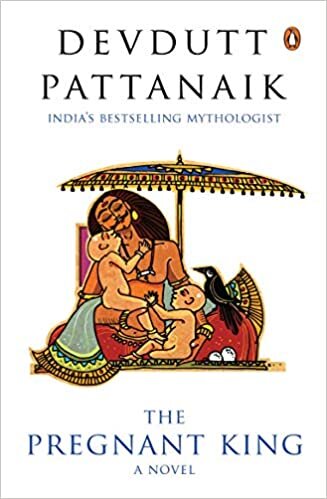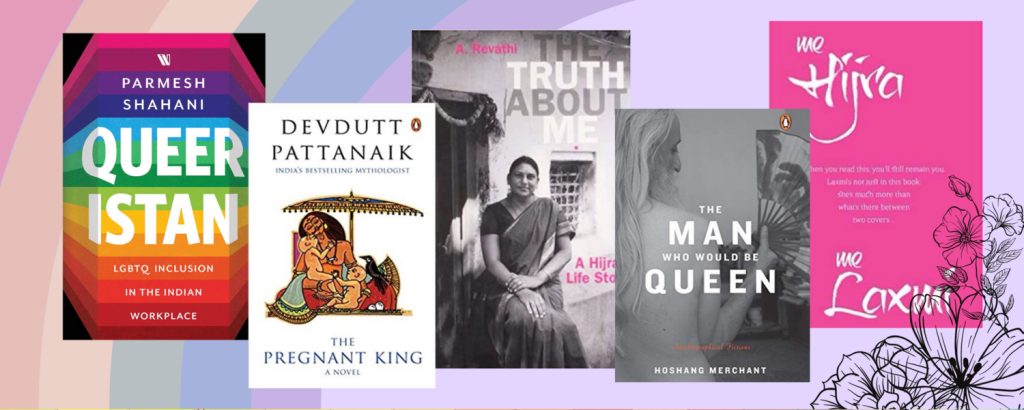India’s relationship with queerness has always been layered, full of contradictions, silences, and quiet rebellions. For centuries, queer stories existed in myths, oral traditions, and whispered histories, only to be erased or sanitised by colonial morality. Even today, mainstream publishing hasn’t always offered a generous space for queer voices.
But they exist, resiliently, beautifully. These stories have found their way into memoirs, essays, fiction, and mythology. They don’t just tell you what it means to be queer in India; they tell you what it means to be human, to fight, to hope, to belong.
Here are five powerful books by queer Indian authors that celebrate authenticity, challenge prejudice, and invite readers into deeply personal worlds.
“The Truth about Me – A Hijra Life Story” by A. Revathi
Revathi’s The Truth About Me is a raw, unapologetic, and deeply moving autobiography, a story of becoming in a world that refuses to see. Born Doraisamy in Tamil Nadu, Revathi narrates her journey of transitioning and claiming her identity as a hijra with unflinching honesty.
Her words are as brave as they are heartbreaking. She writes of the violence she endured, both physical and emotional, and yet, the tone remains one of grace and determination. What makes the book extraordinary isn’t just her courage, but her clarity. Revathi doesn’t ask for pity; she demands recognition.
She invites readers to witness her life not as tragedy, but as triumph, one that belongs not only to her but to every trans person who’s ever had to fight to exist. It’s a reminder that identity isn’t something granted by society; it’s something we carve for ourselves, even when it hurts.
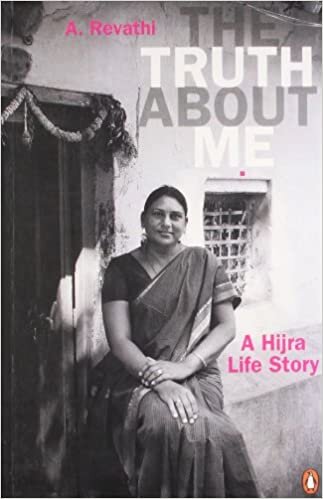
“The Man Who Would Be Queen” – Hoshang Merchant
Hoshang Merchant, one of India’s first openly gay poets, offers a rare glimpse into queer life through this reflective, lyrical collection. The Man Who Would Be Queen is part memoir, part essay, and part love letter to people, cities, and fleeting moments of desire.
Merchant writes in a voice that is at once tender and provocative. His prose flows like poetry, weaving together his experiences of love, longing, and loss in a world that often refused to name him. Through his recollections, sometimes melancholic, often mischievous, he paints queerness not as rebellion, but as a form of self-expression and beauty.
There’s something timeless about the way Merchant writes, as if every page is an act of resistance, and every word, a refusal to disappear. His stories remind us that queerness has always been part of India’s creative, cultural, and spiritual fabric, even when society chose not to see it.
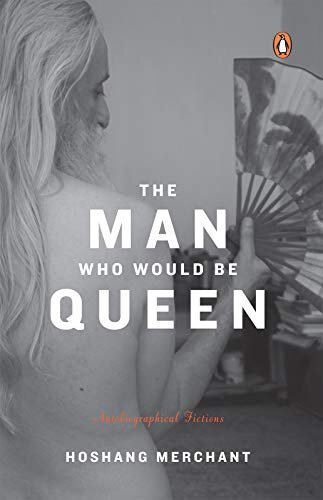
“Queeristan” – Parmesh Shahani
In Queeristan, Parmesh Shahani, the head of Godrej’s India Culture Lab, takes a refreshingly practical approach to queerness. Moving beyond personal narratives, he delves into how inclusion works (or doesn’t) in corporate India. It’s a book about the business of belonging, a guide to building workplaces where people can bring their whole selves to work.
Shahani’s writing is lively and persuasive. He blends research, storytelling, and advocacy to show how companies can move from token gestures to real inclusion. But beneath the business jargon lies something more personal, a belief that economic independence and professional validation are integral to the dignity of queer lives.
In a country where queerness was criminalised until 2018, Shahani’s work reminds us how much representation in professional spaces matters. Queeristan isn’t just a book for HR teams or diversity consultants; it’s a manifesto for anyone who believes that progress must be both personal and systemic.
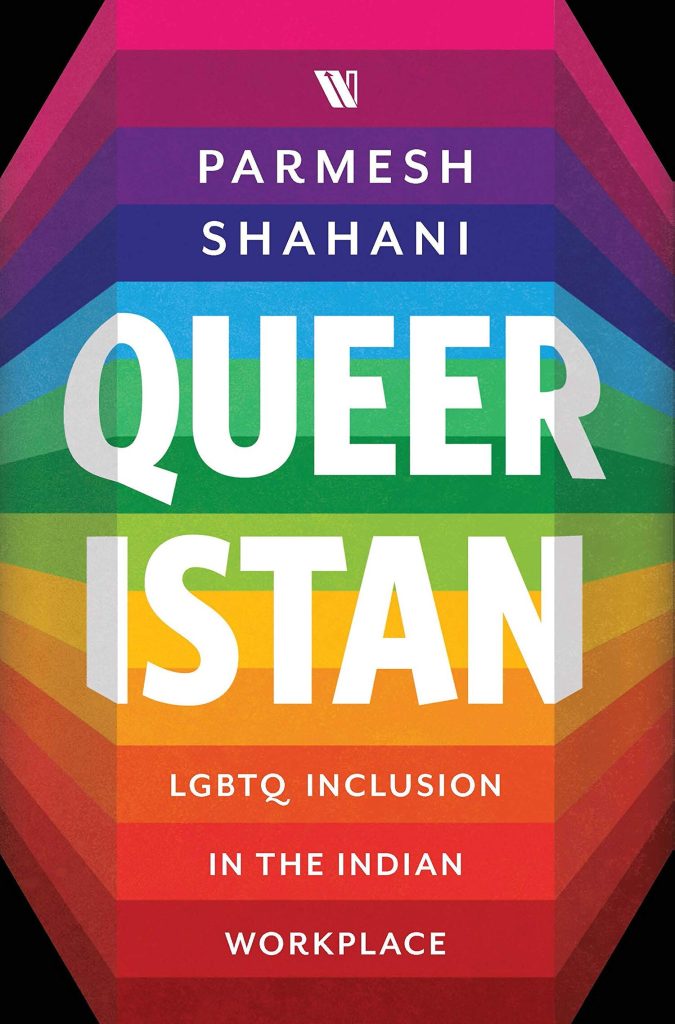
“Me Hijra, Me Laxmi “- Laxmi
Laxmi Narayan Tripathi, dancer, activist, and the first trans woman to represent Asia Pacific at the UN, tells her story with charisma, wit, and raw honesty in Me Hijra, Me Laxmi. It is a memoir of a life lived boldly and loudly, in a world that prefers quiet compliance.
The book captures her struggles with gender dysphoria, societal rejection, and self-doubt, but also her fierce determination to be seen on her own terms. Laxmi’s story is not one of passive endurance; it’s a declaration of power. She doesn’t shy away from glamour, anger, or contradiction. Instead, she wears them all like jewels.
What makes this book unforgettable is its voice, unfiltered and electric. Laxmi doesn’t just tell her story; she performs it. Between its pages, you’ll find heartbreak, rebellion, humour, and pride in equal measure. It’s not just her autobiography; it’s a chronicle of an entire community learning to speak in its own language of love and dignity.
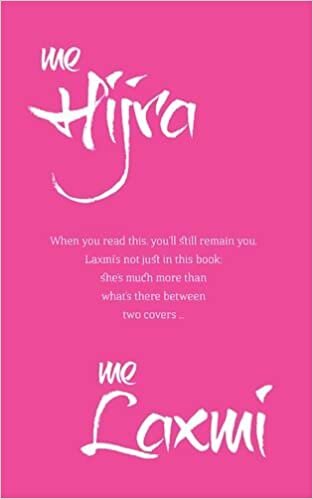
“The Pregnant King” – Devdutt Patnaik
Devdutt Pattanaik’s The Pregnant King is a work of mythological fiction that feels both ancient and startlingly relevant. It tells the story of Yuvanashva, a childless king who accidentally drinks a potion meant for his queens, and ends up bearing a child himself.
What follows is an exploration of gender, identity, and the social discomfort that comes with existing beyond binaries. Through rich symbolism and poetic storytelling, Pattanaik reimagines ancient Indian mythology as a space that once embraced fluidity, before it was redefined by rigid norms.
The brilliance of this book lies in how it reframes queerness as something deeply rooted in Indian thought rather than something imported or “modern.” In Yuvanashva’s story, we see reflections of countless real lives, those who live between categories, between expectations, between the labels the world insists upon.
